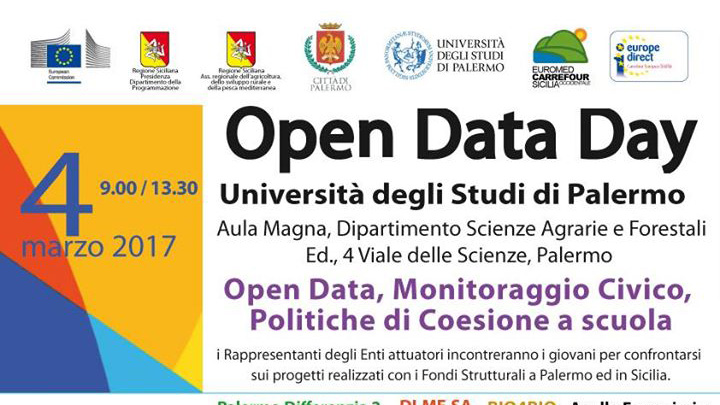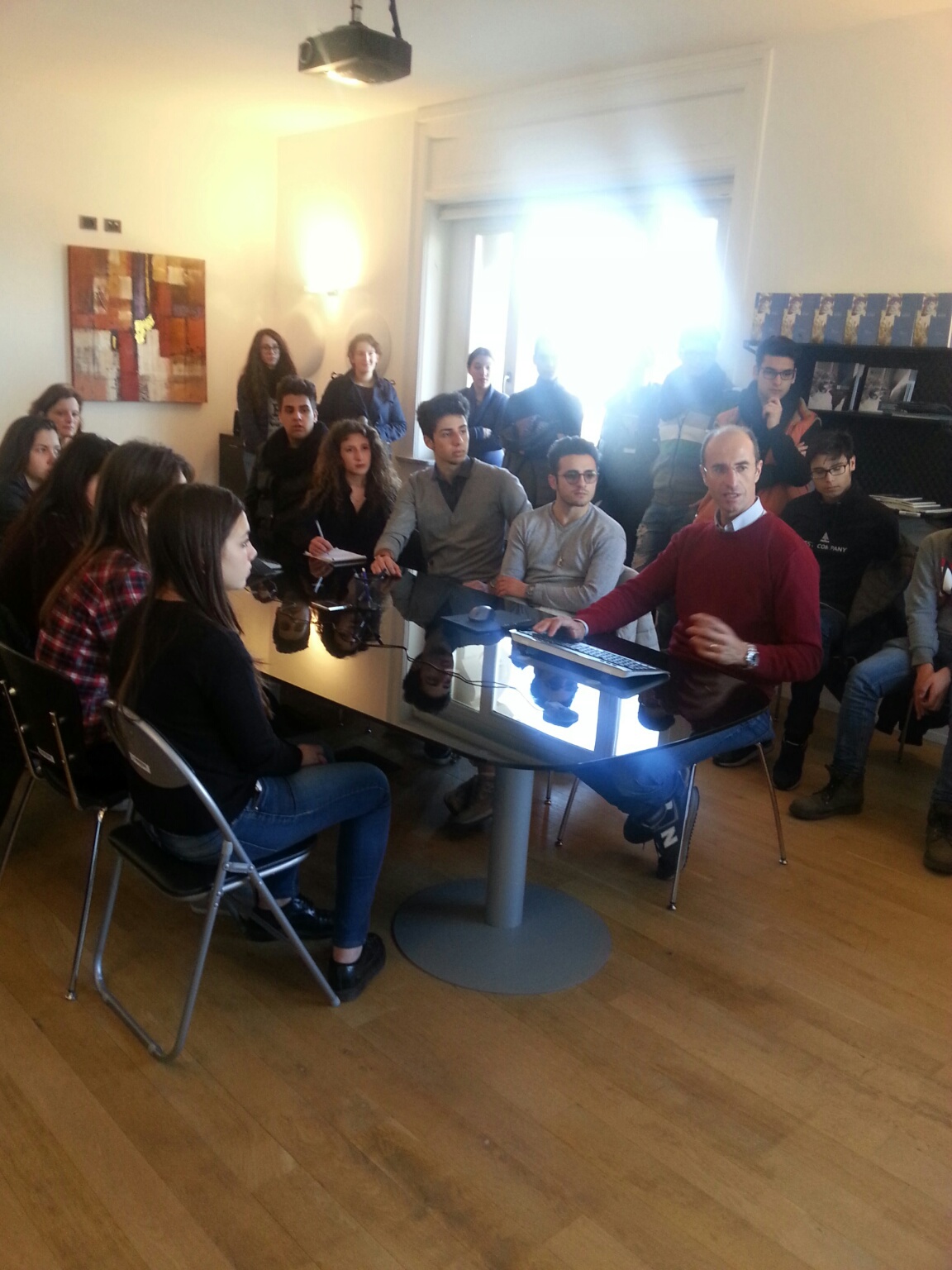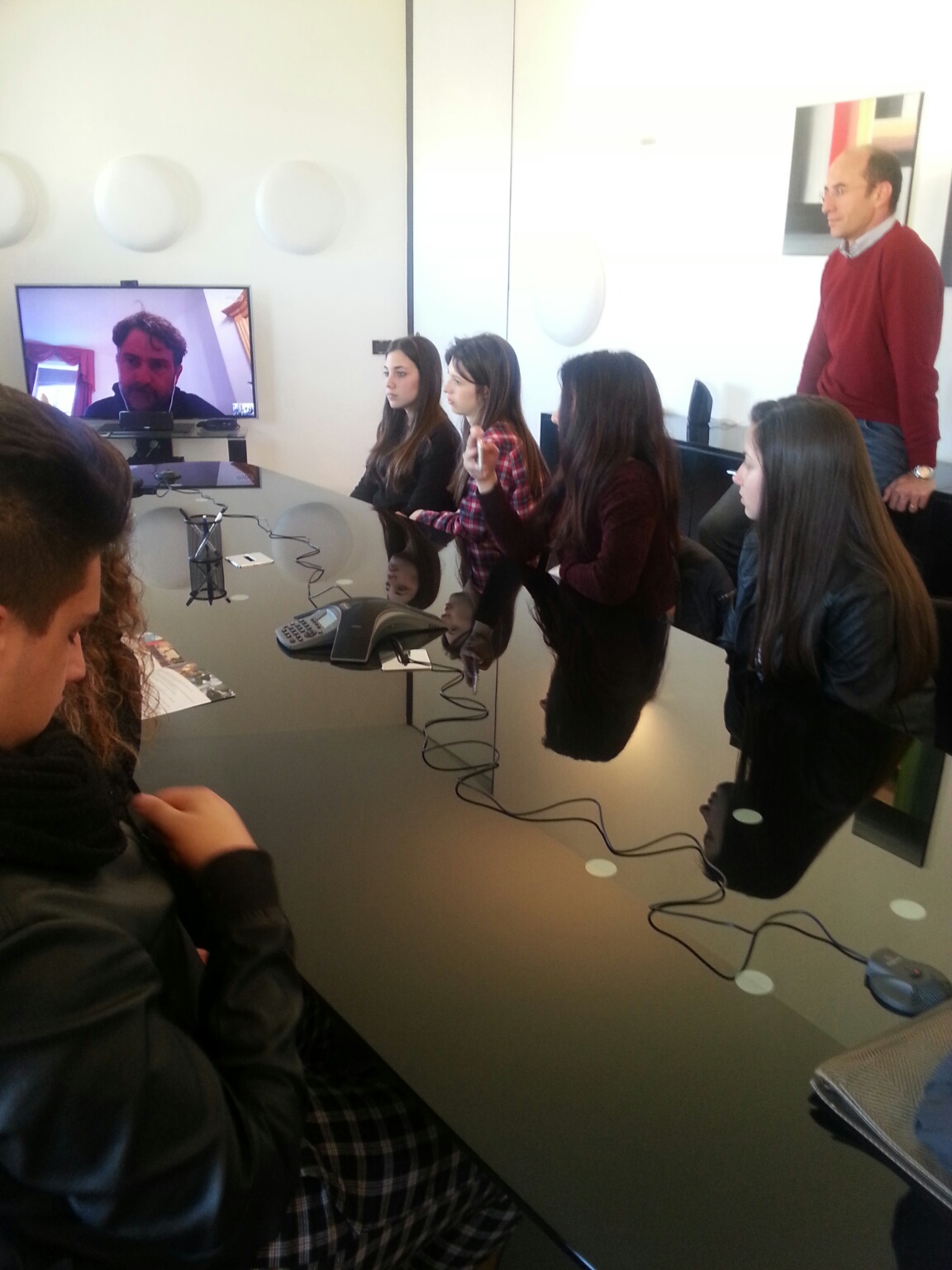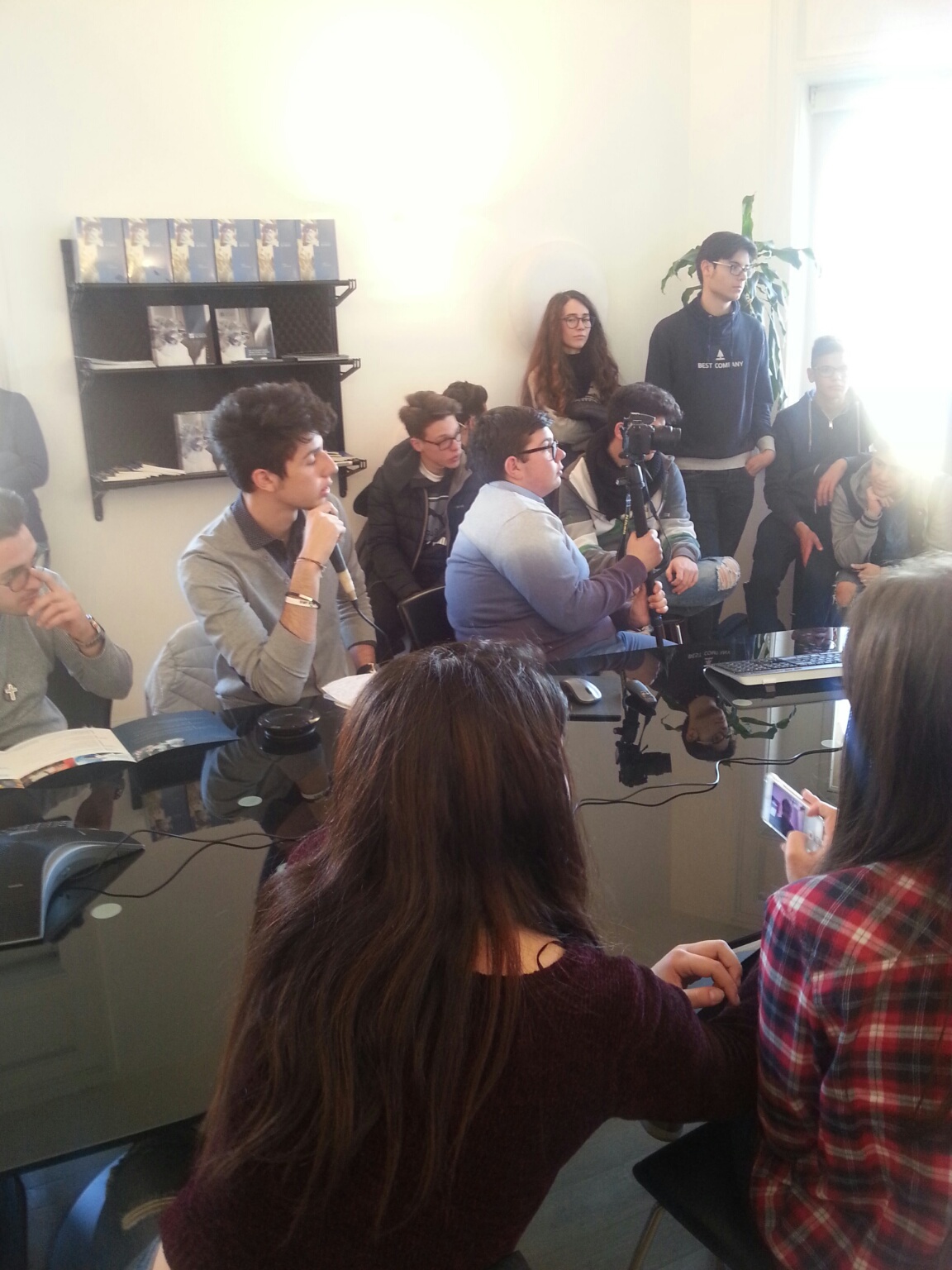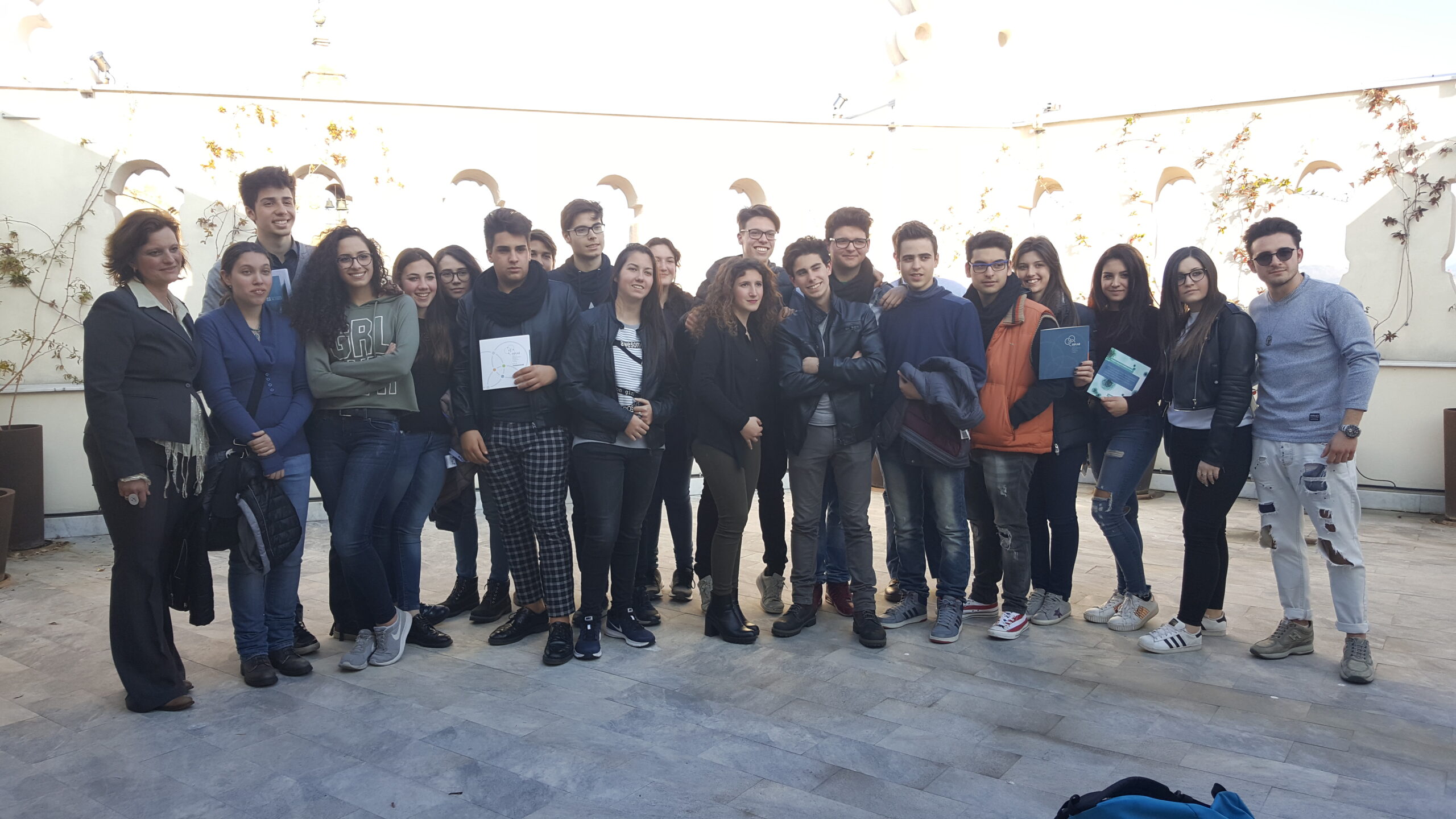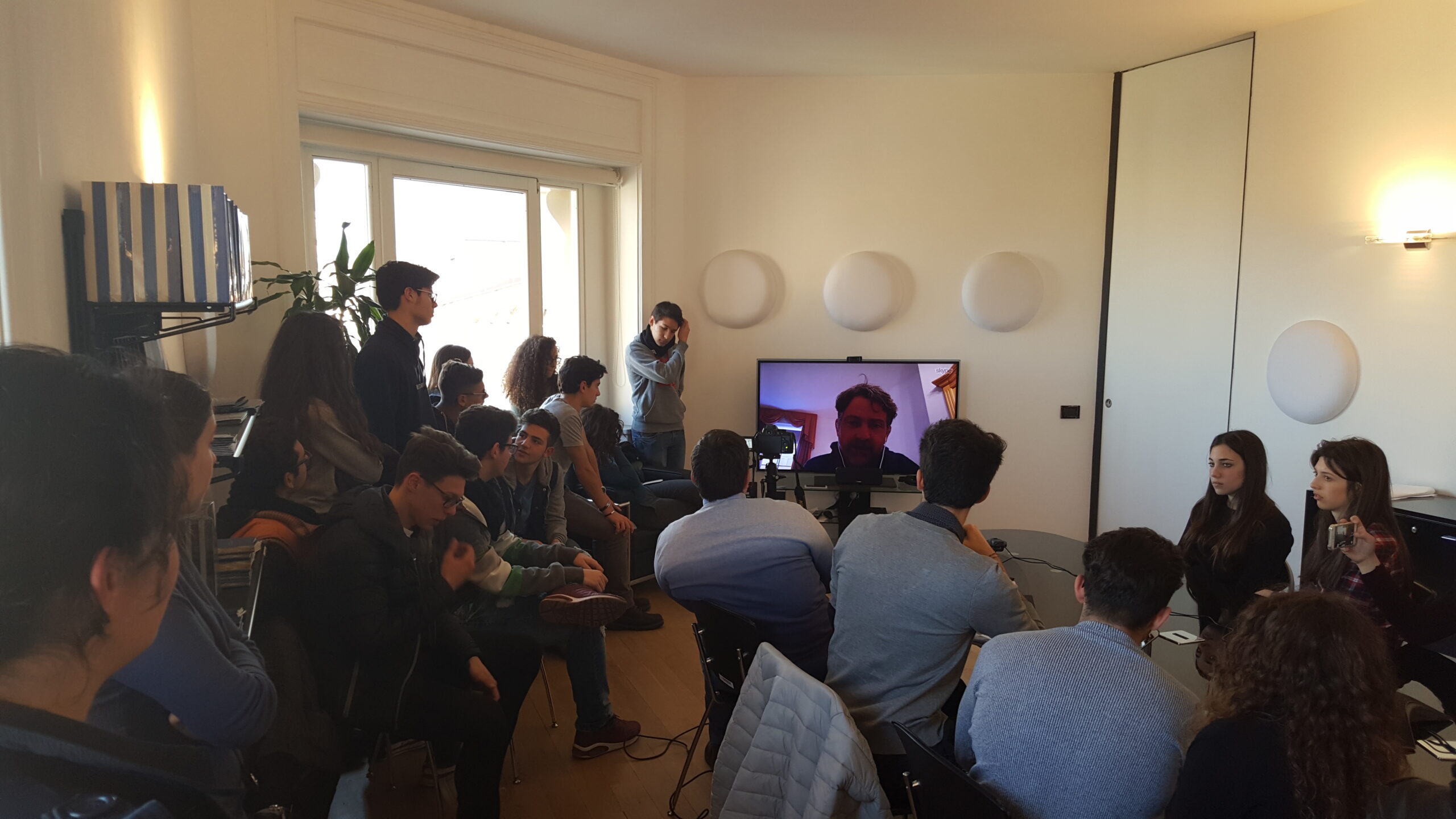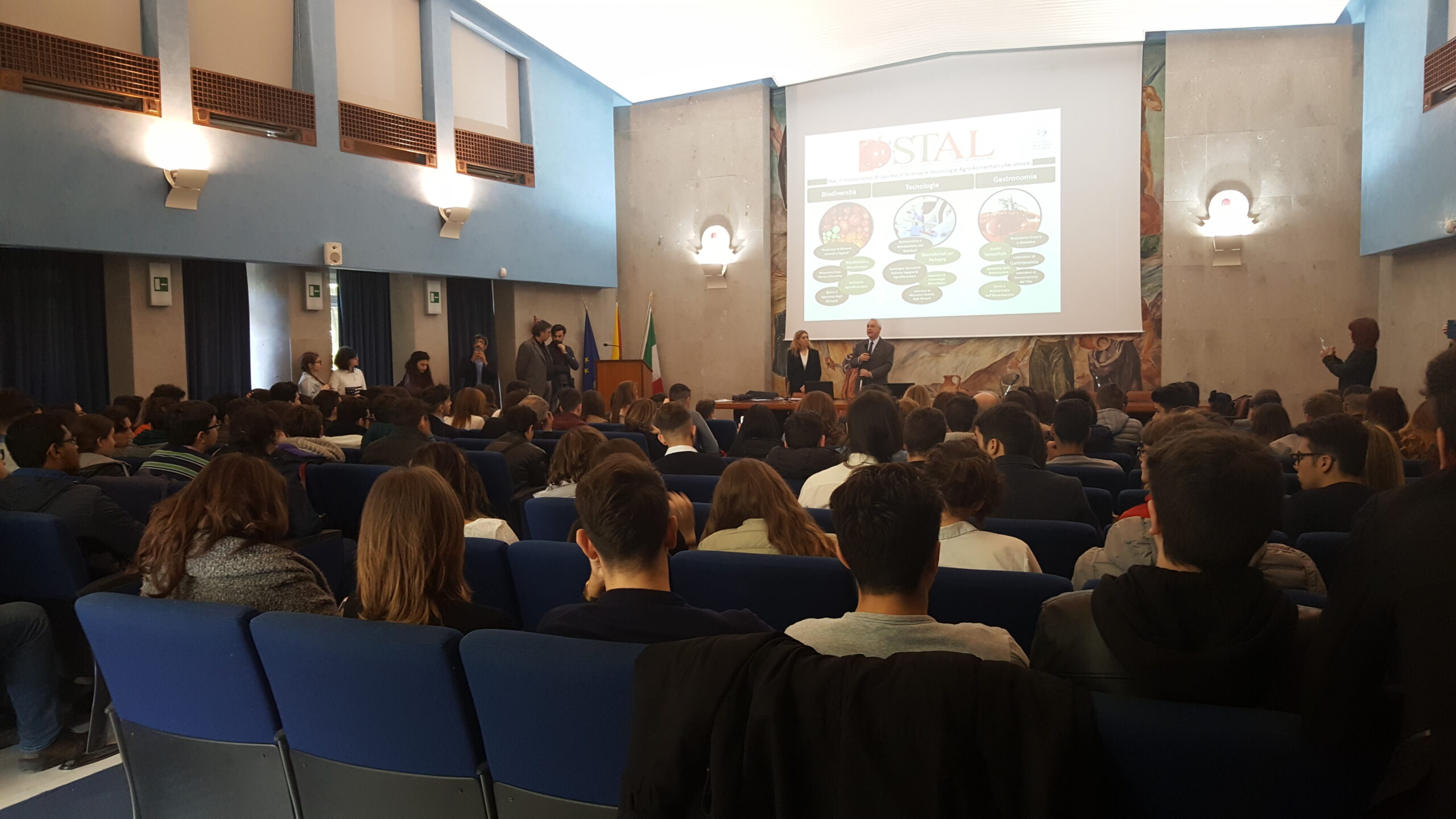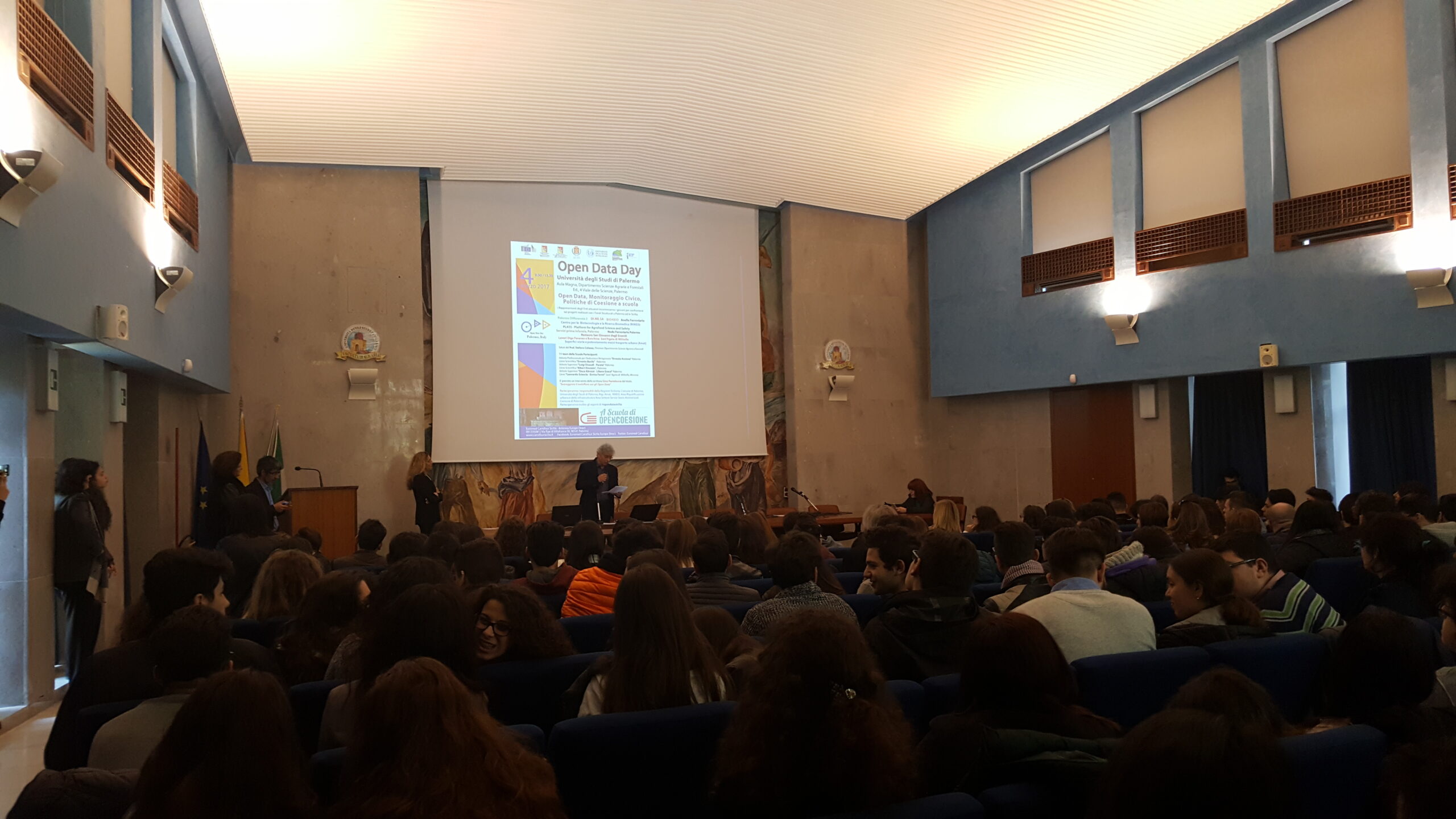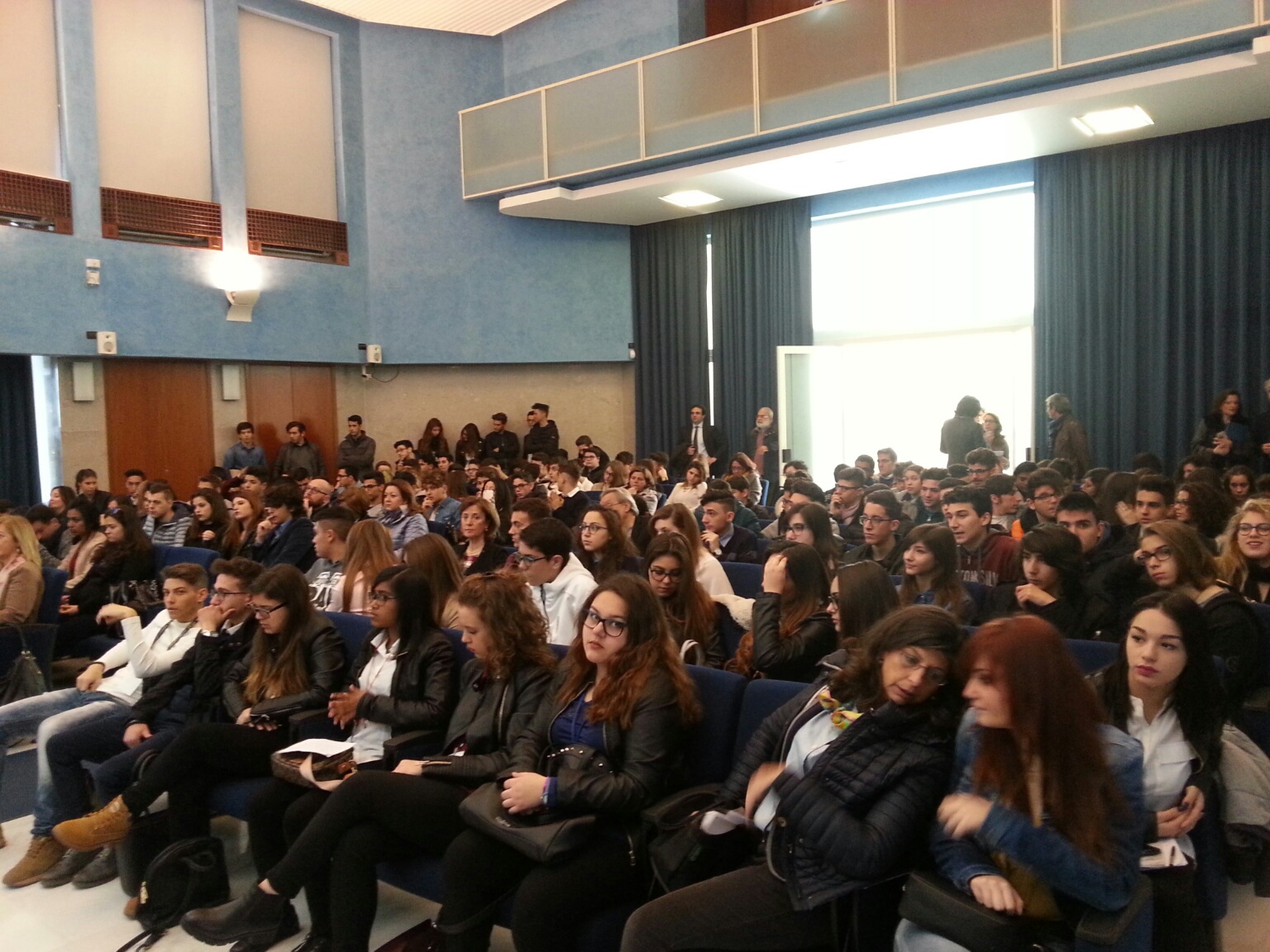Open data day
The Centre for Biotechnology and Biomedical Research of the Ri.MED Foundation was chosen by the Liceo Scientifico Basile of Palermo as a study project under the “OpenCoesione School” initiative.
“OpenCoesione School” (or ASOC, from the Italian “A Scuola di OpenCoesione”) is an educational and civic challenge aimed at students and teachers of upper grade secondary schools: by analysing the information and data published in open format on the OpenCoesione website, it enables students to find out how the public funds are spent within their local area, involving the public in monitoring and discussing their effectiveness.
The ASOC educational course promotes the principles of informed citizenship, developing civic monitoring of public funding by employing information and communication technologies and through the use of data in open format (open data). This helps students to understand and to communicate in an innovative way how the cohesion policies, and therefore public investments, are involved in the places where they live.
“OpenCoesione School” is the result of an agreement between the Department for Development and Economic Cohesion (now transformed into the Agency for Territorial Cohesion and the Department for Cohesion Policies at the Prime Minister’s Office) and the Italian Ministry of Education, Universities and Research (MIUR). It also benefits from a memorandum of understanding signed with the Italian Representation of the European Commission, for the involvement of the network of Europe Direct information centres in support of the participating schools. ASOC is currently supported by the Project financed by the Programme of Action and Complementary Cohesion to the National Operational Programme Governance and Technical Assistance ERDF 2007-2013.
ASOC combines civic education, digital skills, statistics and data journalism, as well as soft skills such as the development of critical thinking, problem-solving, teamwork and interpersonal and communication skills. High-impact narrative is produced from the data on the measures financed by the cohesion policies (available on the website www.opencoesione.gov.it) which is integrated with the contents of the ordinary academic subjects.
The participating student groups are involved in many activities that involve learning and the use of quantitative and qualitative research techniques on their local area, the production and analysis of data and related interactive displays, the use of innovative communication forms and the awareness of standards, rules and technical arrangements for the publication of their project’s results in various cross-media forms, including the ASOC course blog.
Various types of activities are included, combining the typical asynchronous methods of the MOOC (massive online open courses) with online facilitation time with mentors and class tutors and civic monitoring visits, also using the innovative Monithon platform and participating in public meetings and themed events, such as the Open Data Days. Through the activities, the students produce multimedia content (including using video, photos, written text, etc.) on their local area and on one or more operations funded by the cohesion policies; they contribute with reports to relate their observations and disseminate the data they have collected on the Monithon.it platform. Using storytelling techniques, visualization, and innovative communication, they recount cases of local development.
The Sicilian schools that have joined the initiative presented their research to the representatives of the organisations benefiting from the funding for the chosen project on Saturday 4 March in the main lecture theatre at the Faculty of Agriculture in Palermo: hundreds of students gathered to respond to and expand on the themes related to using public funds, first of all answering three fundamental questions: How is the public money being spent in your area? What type of projects are being funded? How are they actually going to improve it?
Representing the Ri.MED Foundation, who were available to answer all of the students’ questions, were the Administrative Director, Emanuele Insinna, and the Head of Communication and Marketing, Donata Sandri.
As a result of the event, the students at the Liceo Scientifico Basile were invited to meet the leaders of the administration of the Ri.MED Foundation at their legal offices in Via Bandiera: after having seen the various members of staff available in the office, and having learned from each of them about the tasks and functions which are carried out in their own role, the students listened to a presentation by the Sole Project Manager, Massimo Inzerillo, regarding the procedure for implementation of the CBRB (Centre for Biotechnology and Biomedical Research) and they asked him all the questions on this topic. The meeting ended with a video interview with the Director General of the Foundation, Alessandro Padova, who spoke with the students about the various aspects related to the Ri.MED activity: from the most appropriate training programme to enter the world of work related to biotechnology, to intellectual property, and from the translational nature of research to the economic impact on the local area and the ability to generate employment and related business.

